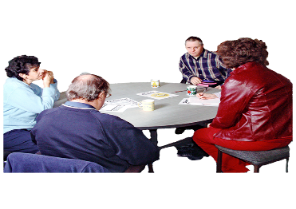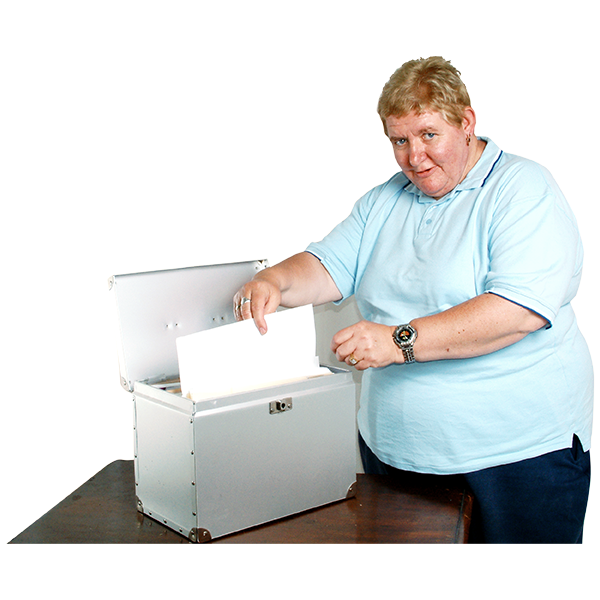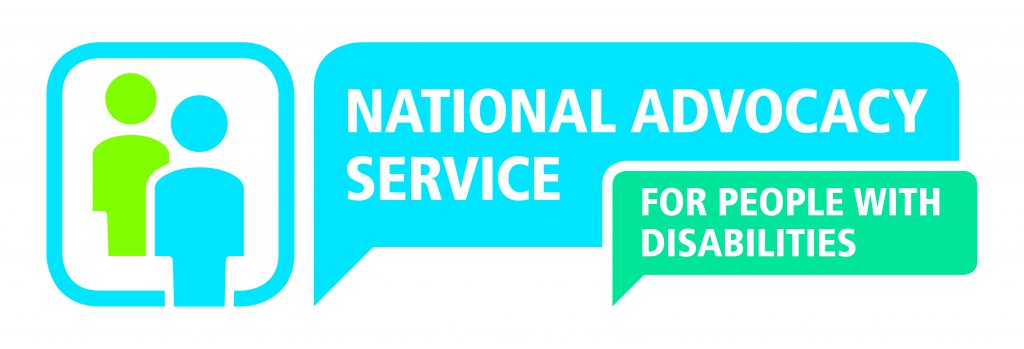You can download this Easy-to-Read Guide here PDF
The National Advocacy Service is called NAS for short
What is Advocacy? 
 Advocacy is about you and your rights.
Advocacy is about you and your rights. Advocacy makes sure you are listened to.
Advocacy makes sure you are listened to. Self-Advocacy is when you speak up for yourself.
Self-Advocacy is when you speak up for yourself. Advocacy is getting help to speak up.
Advocacy is getting help to speak up. Advocacy helps you look at different options.
Advocacy helps you look at different options.
What does an Advocate do?
 Listens to you and what you have to say.
Listens to you and what you have to say. Always takes your side and stands with you.
Always takes your side and stands with you. Finds out information for you.
Finds out information for you. Helps you to look at your options.
Helps you to look at your options. Helps you in making your own decisions.
Helps you in making your own decisions. Helps you tell people like your family, staff, social workers what you want.
Helps you tell people like your family, staff, social workers what you want. Helps you prepare for meetings.
Helps you prepare for meetings. Helps you make a complaint if you are unhappy with a service or the way you are treated.
Helps you make a complaint if you are unhappy with a service or the way you are treated.
What Happens Next?
 You can tell the Advocate the best way to contact you. For example:
You can tell the Advocate the best way to contact you. For example: You can choose to meet with an Advocate in person.
You can choose to meet with an Advocate in person. You can choose to speak with an Advocate over the phone.
You can choose to speak with an Advocate over the phone. You can choose to have a meeting with an Advocate online or on video chat.
You can choose to have a meeting with an Advocate online or on video chat. If you want, you can choose to have someone to support you when you speak with the Advocate.
If you want, you can choose to have someone to support you when you speak with the Advocate.
Meeting the Advocate
 You can tell us how you would like an Advocate to help you.
You can tell us how you would like an Advocate to help you. We will discuss whether an Advocate is the right person to help.
We will discuss whether an Advocate is the right person to help. Sometimes, advocacy is not the right service to support people. This may be because:
Sometimes, advocacy is not the right service to support people. This may be because: The person is already a very good self – advocate.
The person is already a very good self – advocate. The person already has advocacy support from other people.
The person already has advocacy support from other people. Sometimes NAS may not be the right service to help you.
Sometimes NAS may not be the right service to help you.
When this happens, we can give you information about other services.
Waiting List
You and your advocate will:
 Sometimes NAS has a waiting list. You might have to wait before the Advocate can work with you.
Sometimes NAS has a waiting list. You might have to wait before the Advocate can work with you. The Advocate will talk to you about this.
The Advocate will talk to you about this.
The Advocacy Process
 We will try to meet you at a time that suits you.
We will try to meet you at a time that suits you. We will try to meet you in a place that suits you.
We will try to meet you in a place that suits you. You and your Advocate will make an Advocacy Plan.
You and your Advocate will make an Advocacy Plan. The Advocacy Plan says what you want to happen.
The Advocacy Plan says what you want to happen. The Advocacy Plan explains the work the Advocate will do.
The Advocacy Plan explains the work the Advocate will do. You and your Advocate will decide when the work of the Advocacy Plan is finished.
You and your Advocate will decide when the work of the Advocacy Plan is finished. When the work is finished, your Advocate will stop working with you.
When the work is finished, your Advocate will stop working with you.
Approaches to Advocacy that we use
Instructed
 You will tell your Advocate what you want them to do.
You will tell your Advocate what you want them to do. Your Advocate will not do something that you do not want.
Your Advocate will not do something that you do not want.
Person centred
 You tell your Advocate what you want and need.
You tell your Advocate what you want and need. You tell your Advocate what is important to you.
You tell your Advocate what is important to you. Your Advocate will help you tell other people.
Your Advocate will help you tell other people. Your Advocate will help you tell other people.
Your Advocate will help you tell other people.
Witness observer
 We spend time with you and tell people what we notice so that we can help you change your situation.
We spend time with you and tell people what we notice so that we can help you change your situation.
Human Rights
 We support people to stand up for their rights, and to be treated equally.
We support people to stand up for their rights, and to be treated equally.
Ordinary Life Principals
 Ordinary life principles looks at the quality of your life.
Ordinary life principles looks at the quality of your life. It looks at how decisions about your life are made.
It looks at how decisions about your life are made. There are 8 domains in ordinary Life Principles.
There are 8 domains in ordinary Life Principles. The advocate will use the domains to ask questions of the Decision makers.
The advocate will use the domains to ask questions of the Decision makers. The approach keeps you at the centre of the process.
The approach keeps you at the centre of the process.
Data Protection
 Personal information is also known as personal data.
Personal information is also known as personal data. There are laws to protect personal data.
There are laws to protect personal data. We will explain GDPR to you and ask you to sign a GDPR consent form.
We will explain GDPR to you and ask you to sign a GDPR consent form. We will ask you if it is ok to collect and store your personal data.
We will ask you if it is ok to collect and store your personal data. You have a right to see the information we keep about you.
You have a right to see the information we keep about you.
Confidentiality
 NAS is a Confidential service.
NAS is a Confidential service.
Confidential means that the information is kept private. Your work with your Advocate is confidential.
Your work with your Advocate is confidential. We will also ask for your consent to share and get information from others.
We will also ask for your consent to share and get information from others. However, there may be times when we need to share information with someone else without your agreement. These are when:
However, there may be times when we need to share information with someone else without your agreement. These are when: – You, someone else or a child is in danger;
– You, someone else or a child is in danger; – A court asks for information;
– A court asks for information; – When the law tells us we have to;
– When the law tells us we have to; – When we see or hear about abuse or neglect of a person.
– When we see or hear about abuse or neglect of a person. We will talk to you if this needs to happen.
We will talk to you if this needs to happen.
Complaint
 NAS has a complaints policy. We are happy to share this with you.
NAS has a complaints policy. We are happy to share this with you. If you are not happy with NAS or your Advocate, you can make a complaint;
If you are not happy with NAS or your Advocate, you can make a complaint; In person to your Advocate;
In person to your Advocate; By phone – 0818 07 3000;
By phone – 0818 07 3000; By letter to our national office;
By letter to our national office; Email or on complaint form:
Email or on complaint form:
info@advocacy.ie. You can ask for help from someone else to make a complaint.
You can ask for help from someone else to make a complaint. You can contact the relevant line manager to make a complaint.
You can contact the relevant line manager to make a complaint.
If you want to use the NAS service, you can fill out a form here